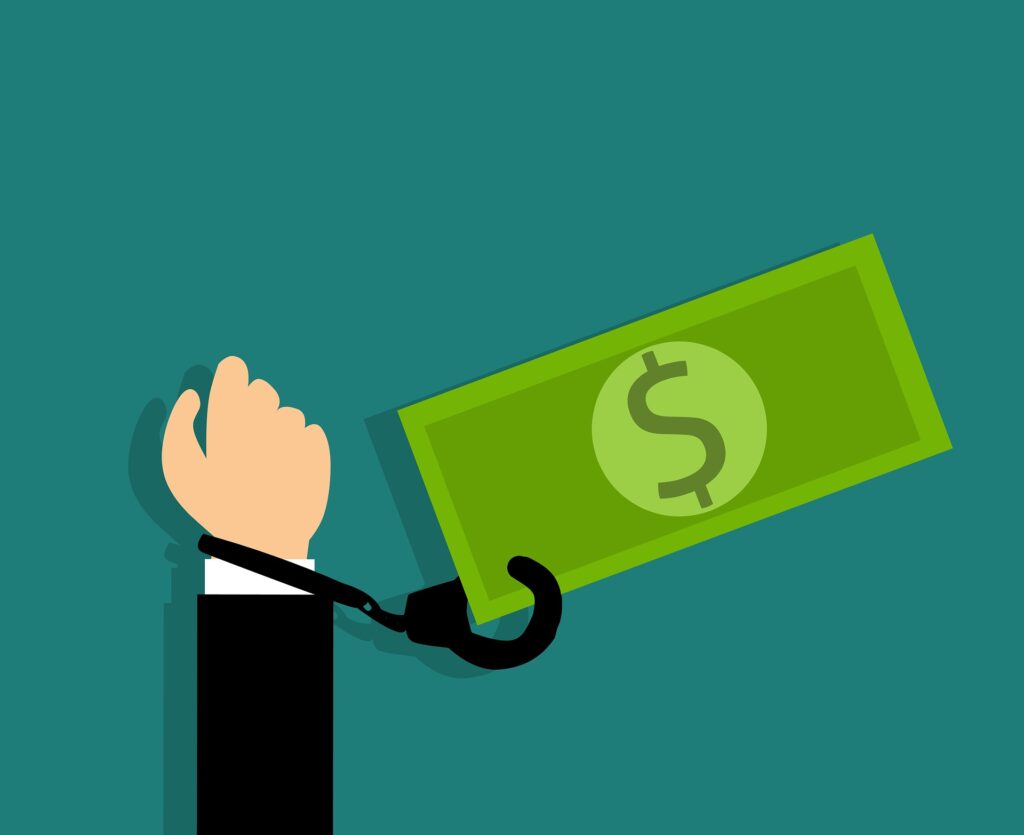Living paycheck to paycheck is a reality for many individuals and families worldwide. The stress of financial insecurity can affect every aspect of life, from mental and physical health to relationships and overall well-being. Breaking free from this cycle is essential for long-term financial stability and peace of mind.
Assess Your Financial Situation
- Start by evaluating your current financial situation. Calculate your income, expenses, debts, and savings.
- Create a detailed budget outlining all sources of income and every expense, including necessities and discretionary spending.
- Identify areas where you can reduce expenses or eliminate unnecessary spending which can be hurtful during times of inflation.
Prioritize Debt Repayment
- Develop a strategy for paying off debts, focusing on high-interest debts first while making minimum payments on others.
- Explore debt consolidation options or negotiate with creditors to lower interest rates or create more manageable repayment plans.
- Once high-interest debts are paid off, reallocate the funds towards other debts or savings goals.
Find Ways to Increase Income
- Explore opportunities to increase your income, such as asking for a raise, seeking higher-paying employment, or starting a side hustle.
- Invest in improving your skills or education to qualify for better-paying jobs or freelance opportunities.
- Monetize hobbies or talents by offering services or selling products online or in your community.
Live Below Your Means
- Adopt a frugal lifestyle by prioritizing needs over wants and avoiding unnecessary expenses.
- Look for ways to save money on everyday purchases, such as shopping sales, using coupons, or buying generic brands.
- Practice mindful spending by distinguishing between essential and discretionary expenses and cutting back on non-essential purchases which can undermine your goals when gas and food costs are so high.
Build an Emergency Fund
- Establishing an emergency fund is crucial for financial resilience. Aim to save at least three to six months’ worth of living expenses.
- Start small if necessary, but make regular contributions to your emergency fund until it reaches the desired amount.
- Consider automating your savings by setting up automatic transfers from your paycheck to your emergency fund account.
Track and Monitor Expenses
- Keep track of every expense, no matter how small, to gain insight into your spending habits and identify areas where you can cut back.
- Use budgeting apps or spreadsheets to categorize expenses and analyze trends over time.
- Regularly review your spending patterns and adjust your budget accordingly to stay on track with your financial goals.
Create Multiple Income Streams
- Diversify your income sources to reduce reliance on a single paycheck. Explore opportunities for passive income, such as investing in stocks, bonds, or real estate.
- Consider renting out a room in your home, starting a small business, or freelancing in your spare time.
- Invest in income-generating assets that can provide a steady stream of passive income over time.
Negotiate Recurring Bills
- Don’t be afraid to negotiate with service providers, such as cable companies, insurance providers, or credit card companies, to lower your bills.
- Research competitive rates and leverage offers from other providers as bargaining power when negotiating with your current providers.
- Consider bundling services or switching to more affordable alternatives to reduce monthly expenses without sacrificing quality.
Embrace a Lifestyle of Minimalism
- Simplify your lifestyle by decluttering your living space and letting go of unnecessary possessions.
- Adopt a minimalist mindset by focusing on experiences and relationships rather than material possessions.
- Reduce consumption by practicing mindful spending and avoiding impulse purchases, which can help you save money and lead a more fulfilling life.
Invest in Yourself
- Invest in your personal and professional development to increase your earning potential and career opportunities.
- Take courses, attend workshops, or pursue certifications that can enhance your skills and qualifications.
- Invest in your health and well-being by prioritizing self-care, exercise, and mental wellness, which can improve your overall quality of life and productivity.
Participate in the Gig Economy
- Take advantage of the flexibility and earning potential offered by the gig economy to supplement your primary income.
- Explore gig economy platforms such as Uber, Lyft, TaskRabbit, or Upwork to find opportunities that match your skills and schedule.
- Use your talents and expertise to offer freelance services in areas such as writing, graphic design, photography, or consulting, allowing you to earn extra income on your own terms.
Automate Savings and Investments
- Take advantage of automation tools to make saving and investing effortless.
- Set up automatic transfers from your checking account to your savings or investment accounts each payday.
- Consider enrolling in employer-sponsored retirement plans, such as 401(k) or IRA accounts, and contribute enough to maximize employer matching contributions, if available.
Practice Delayed Gratification
- Avoid instant gratification by delaying non-essential purchases and saving up for larger expenses instead.
- Implement a waiting period before making significant purchases to determine whether they are truly necessary or simply impulse buys.
- Focus on long-term satisfaction and fulfillment rather than short-term impulses, which can help you make more mindful spending decisions and avoid unnecessary debt.
Seek Support and Accountability
- Surround yourself with supportive individuals who share your financial goals and values.
- Join online communities or local groups focused on financial literacy and frugality to learn from others’ experiences and gain encouragement.
- Consider partnering with an accountability buddy or hiring a financial coach to help you stay accountable and motivated on your journey towards financial freedom.
Plan for the Future
- Set realistic financial goals for the short, medium, and long term. Whether it’s saving for a vacation, buying a home, or retiring comfortably, having clear goals can help you stay motivated and focused.
- Review and adjust your financial plan regularly as your circumstances and priorities change.
- Consider seeking professional financial advice or counseling to help you develop a comprehensive financial plan tailored to your needs and goals.
Escaping the paycheck-to-paycheck cycle requires a combination of discipline, resourcefulness, and strategic planning. You can gradually take meaningful steps towards financial stability and independence. Remember that financial freedom is certainly achievable with patience, perseverance, and a commitment to making positive changes in your financial habits and mindset.




